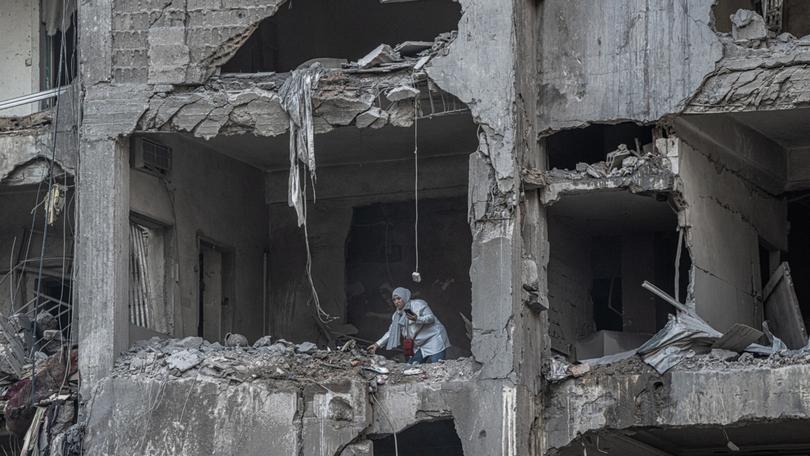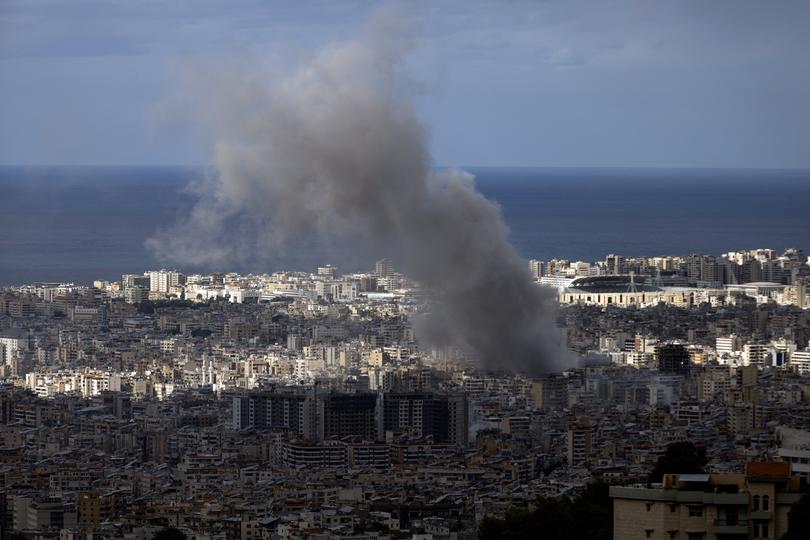THE NEW YORK TIMES: Israel approves cease-fire with Hezbollah to halt war in Lebanon
THE NEW YORK TIMES: The Israeli security Cabinet has approved a deal for a cease-fire with Hezbollah in Lebanon, signalling that more than a year of conflict will soon be suspended.

JERUSALEM — The Israeli security Cabinet on Tuesday night approved a deal for a cease-fire with Hezbollah in Lebanon, signalling that more than a year of conflict will soon be suspended, and raising hopes around the region that Lebanon’s deadliest war in decades could be over.
The cease-fire will take effect at 4 a.m. Wednesday, President Joe Biden said at the White House.
The 10-1 vote by Israeli ministers came after Israeli Prime Minister Benjamin Netanyahu publicly embraced the proposal in a televised speech to the nation.
Sign up to The Nightly's newsletters.
Get the first look at the digital newspaper, curated daily stories and breaking headlines delivered to your inbox.
By continuing you agree to our Terms and Privacy Policy.Just hours earlier, Israeli forces had pounded the heart of Beirut and Hezbollah-dominated neighbourhoods south of the city with some of the heaviest airstrikes of the war.
Biden said he had spoken with Netanyahu and with Lebanese Prime Minister Najib Mikati, and was “pleased to announce their governments have accepted the United States’ proposal to end the conflict between Israel and Hezbollah.”
Biden said that although the agreed-on cease-fire is for 60 days, “This is designed to be a permanent cessation of hostilities.”
But Netanyahu said in his televised address, “The length of the cease-fire will depend on what happens in Lebanon.”
Netanyahu said the cease-fire would allow Israel to focus on Iran, which backs Hezbollah and Hamas; give the military an opportunity to rest and rebuild its stockpiles; and isolate Hamas, the group Israel has been fighting in the Gaza Strip since it led the attacks of Oct. 7, 2023.

Netanyahu did not reveal the terms of the cease-fire, and it is not yet certain that Israel’s understanding of the truce matches Hezbollah’s.
The proposed deal, mediated by U.S. and French diplomats, had called for Israeli troops to withdraw from Lebanon and Hezbollah’s fighters to move north of the Litani River, allowing the Lebanese army — which is not a party to the conflict — and a U.N. peacekeeping force to fill the vacuum. The cease-fire would be overseen by several countries, including the U.S. and France, as well as by the United Nations.
The war in Lebanon has killed nearly 3,800 Lebanese, according to the government, and has displaced more than 1 million people in the country, or nearly a quarter of the population. About 100 Israelis have been killed and tens of thousands have been displaced from their homes in northern Israel.
This article originally appeared in The New York Times.
© 2024 The New York Times Company
Originally published on The New York Times
